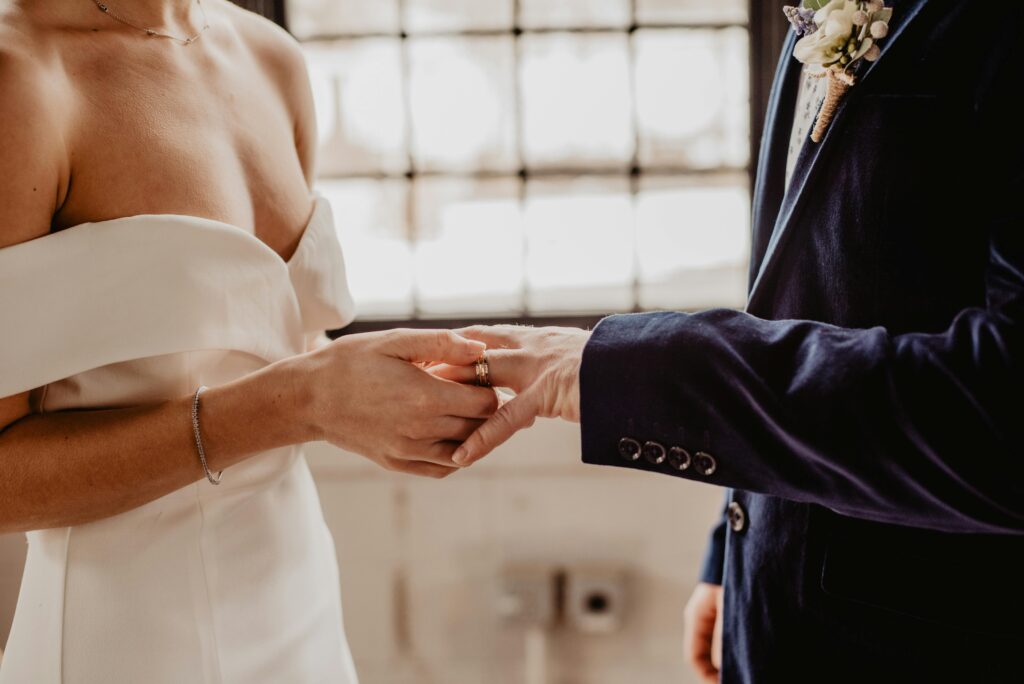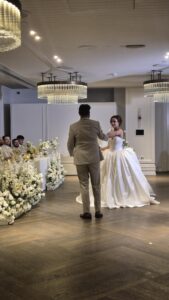In Australia, there are specific legal requirements that must be met for a couple to be considered legally married. These requirements are outlined in the Marriage Act 1961 (Cth). Here’s a breakdown of what makes you legally married in Australia:
1. Both Parties Must Meet Eligibility Requirements
- Age: Both parties must be at least 18 years old. Exceptions can be made in rare circumstances, but one party must still be over 18, and court approval is required for the other.
- Consent: Both parties must give their full and free consent to marry. A marriage is not valid if either party is coerced or does not understand what they are agreeing to (e.g., due to intoxication or mental incapacity).
- Marital Status: Both parties must be single, divorced, or widowed at the time of the marriage.
2. Proper Notice of Intended Marriage Must Be Given
You must complete and lodge a Notice of Intended Marriage (NOIM) form with your celebrant at least one month and no more than 18 months before the wedding.
- The NOIM form must be signed in the presence of an authorised witness (e.g., a celebrant, JP, solicitor, or police officer).
- You’ll need to provide evidence of identity and marital status, such as a birth certificate or passport, and divorce or death certificates if previously married.
3. The Ceremony Must Follow Legal Formalities
The marriage ceremony must meet these conditions:
- Authorised Celebrant: The ceremony must be conducted by an authorised celebrant. This could be a civil celebrant, a religious celebrant registered under Australian law, or a state official.
- Vows: Both parties must make a legal declaration in their vows, stating, “I call upon the persons here present to witness that I, [Name], take you, [Name], to be my lawful wedded [wife/husband/spouse].”
- Witnesses: The marriage must be witnessed by at least two people who are over 18 years old.
4. The Marriage Must Be Registered
The celebrant is responsible for lodging the marriage paperwork with the relevant state or territory registry of births, deaths, and marriages. This includes:
- The signed Marriage Certificate.
- The NOIM form.
Once registered, you can apply for an official marriage certificate, which is often required for legal name changes or proof of marriage.
What Does Not Make You Legally Married?
- Informal ceremonies, such as a commitment ceremony or cultural/religious ceremony, without meeting the above requirements.
- A celebrant who is not authorised under Australian law.
- Failing to register the marriage with the appropriate government authority.
Same-Sex Marriage in Australia
Since December 2017, same-sex marriage has been legal in Australia. Same-sex couples must meet the same requirements as heterosexual couples.
To be legally married in Australia, you must meet eligibility requirements, provide proper notice, have a ceremony conducted by an authorised celebrant, and register the marriage. Following these steps ensures your marriage is recognised under Australian law.
If you’re planning your big day and need help coordinating the legal or celebratory aspects, feel free to reach out to us for expert guidance!





